How to irrigate a urinary catheter Idea
Home » Trend » How to irrigate a urinary catheter IdeaYour How to irrigate a urinary catheter images are ready in this website. How to irrigate a urinary catheter are a topic that is being searched for and liked by netizens now. You can Download the How to irrigate a urinary catheter files here. Get all free images.
If you’re searching for how to irrigate a urinary catheter pictures information linked to the how to irrigate a urinary catheter interest, you have come to the ideal blog. Our site always gives you hints for seeking the highest quality video and image content, please kindly search and find more informative video content and images that fit your interests.
How To Irrigate A Urinary Catheter. It is important to irrigate more frequently if the urine output has diminished or if the blake drain or penrose drain seem to have a significant increase in the amount of output. Eighteen of 98 (18 per cent) of the patients not given irrigatio … Place a towel or drape beneath the connection of the foley catheter. To irrigate the catheter, follow these steps:
 3way Foley catheter handirrigation with a Piston Syringe From pinterest.com
3way Foley catheter handirrigation with a Piston Syringe From pinterest.com
Like all medical procedures, even this common one, proper medical training and strict adherence to safety and sanitation procedures are a must. Urinary catheter/bladder irrigation requires a prescriber’s order. This is the correct answer. Pull on the syringe to remove excess urine. Such urethral catheterization is associated with polymicrobial bacteriuria, catheter obstruction, fever, bacteremia, urinary tract stones, and death. Open a sterile syringe package and draw 30 ml of normal saline into it.
Open a sterile syringe package and draw 30 ml of normal saline into it.
Management of short term indwelling urethral catheters to prevent. It is important to irrigate more frequently if the urine output has diminished or if the blake drain or penrose drain seem to have a significant increase in the amount of output. Wash your hands with soap and water. The order must include type and amount of. Eighteen of 98 (18 per cent) of the patients not given irrigatio … Clean the connection site between the syringe and the catheter with a fresh wipe.
 Source:
Source:
Wash your hands with soap and water. A 22f triple lumen is the standard size for bladder irrigation and ‘washout’. If you feel as though you need to irrigate/aspirate more frequently, please call the office, so we can update your chart. With any process such as suprapubic catheter irrigation it is important to guard against infection and compromising the device. It is pretty chaotic in her cubicle:
 Source:
Source:
To care for an indwelling catheter, clean the area where the catheter exits your body and the catheter itself with soap and water every day. Like all medical procedures, even this common one, proper medical training and strict adherence to safety and sanitation procedures are a must. Pull on the syringe to remove excess urine. Remove any securement device and detach the tubing, avoiding any sharp or strong motions. Catheters are used to drain the bladder when other means are not possible due to surgery, illness, incontinence, retention or certain other medical conditions that makes urination difficult.
![]() Source:
Source:
This publication focuses on indwelling catheters both suprapubic and urethral. Increase the irrigation drip rate. To irrigate the catheter, follow these steps: Do not fan or blow on it. It is important to irrigate more frequently if the urine output has diminished or if the blake drain or penrose drain seem to have a significant increase in the amount of output.
 Source: youtube.com
Source: youtube.com
No need to wake up overnight to irrigate, last When do you irrigate a urinary catheter? If you feel as though you need to irrigate/aspirate more frequently, please call the office, so we can update your chart. The nurse does not get another catheter, but instead continues to insert the “dirty” catheter. Irrigation is a procedure to open a plugged urinary catheter.
 Source:
Source:
Irrigation is a procedure to open a plugged urinary catheter. Periodic catheter irrigation is a common but … Eighteen of 98 (18 per cent) of the patients not given irrigatio … A urinary catheter is a thin tube that drains urine (pee) from the bladder to the outside of the body. If you are unable to aspirate or irrigate the catheter, call the doctor.
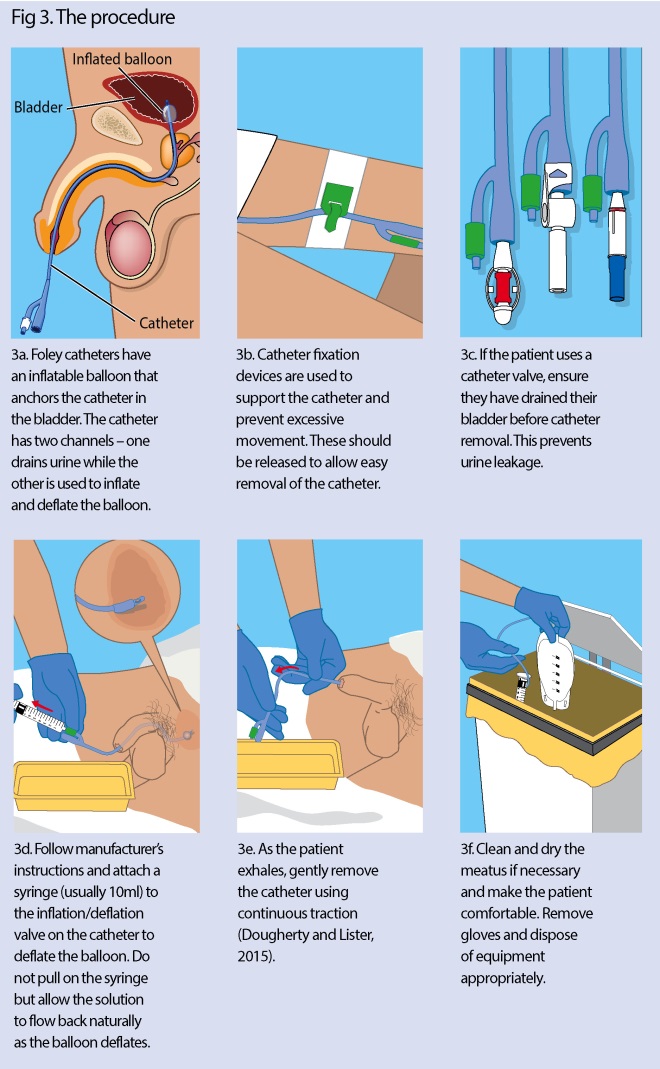 Source: nursingtimes.net
Source: nursingtimes.net
If you are unable to aspirate or irrigate the catheter, call the doctor. A urinary catheter is a thin tube that drains urine (pee) from the bladder to the outside of the body. Irrigate through the catheter every four hours during the day using normal saline (do not use tap water). The order must include type and amount of. Add the ns solution into the collection container, making sure it’s at room temperature.
 Source:
Source:
Also clean the area after every bowel movement to prevent infection. Please irrigate/aspirate according to your provider�s order: Irrigation is a procedure to open a plugged urinary catheter. With any process such as suprapubic catheter irrigation it is important to guard against infection and compromising the device. Irrigate through the catheter every four hours during the day using normal saline (do not use tap water).
 Source:
Source:
The catheter needs to be irrigated (rinsed). During the catheter insertion the tip of the urinary catheter inadvertently touches the nurse’s scrub top. The order must include type and amount of. Then, disconnect the tubing and insert an empty, sterile syringe into the open end of the catheter. Do not fan or blow on it.
 Source: wikihow.com
Source: wikihow.com
Alternatives to indwelling urethral catheterization should be considered. Irrigation is a procedure to open a plugged urinary catheter. Eighteen of 98 (18 per cent) of the patients not given irrigatio … Irrigate through the catheter every four hours during the day using normal saline (do not use tap water). Pull on the syringe to remove excess urine.
 Source:
Source:
To care for an indwelling catheter, clean the area where the catheter exits your body and the catheter itself with soap and water every day. It is important to irrigate more frequently if the urine output has diminished or if the blake drain or penrose drain seem to have a significant increase in the amount of output. If you are unable to aspirate or irrigate the catheter, call the doctor. Place the drape under where the tube meets the bag. Do not fan or blow on it.
 Source: researchgate.net
Source: researchgate.net
When do you irrigate a urinary catheter? Management of short term indwelling urethral catheters to prevent. The catheter simultaneously allows fluid to run into and drain out of the bladder. Insert the catheter tip of the syringe filled with irrigation solution into the open end of the foley catheter tubing. Parents and older children can learn how to look after a urinary catheter at home.
 Source: designawards.core77.com
Source: designawards.core77.com
How to irrigate a suprapubic catheter. Removing a blockage at times the catheter may be blocked or slow to drain. • each catheter irrigation kit, includes: The catheter needs to be irrigated (rinsed). How to irrigate a suprapubic catheter.
 Source:
Source:
It is important to irrigate more frequently if the urine output has diminished or if the blake drain or penrose drain seem to have a significant increase in the amount of output. • each catheter irrigation kit, includes: How to irrigate a suprapubic catheter. Irrigate through the catheter every four hours during the day using normal saline (do not use tap water). Open a sterile syringe package and draw 30 ml of normal saline into it.
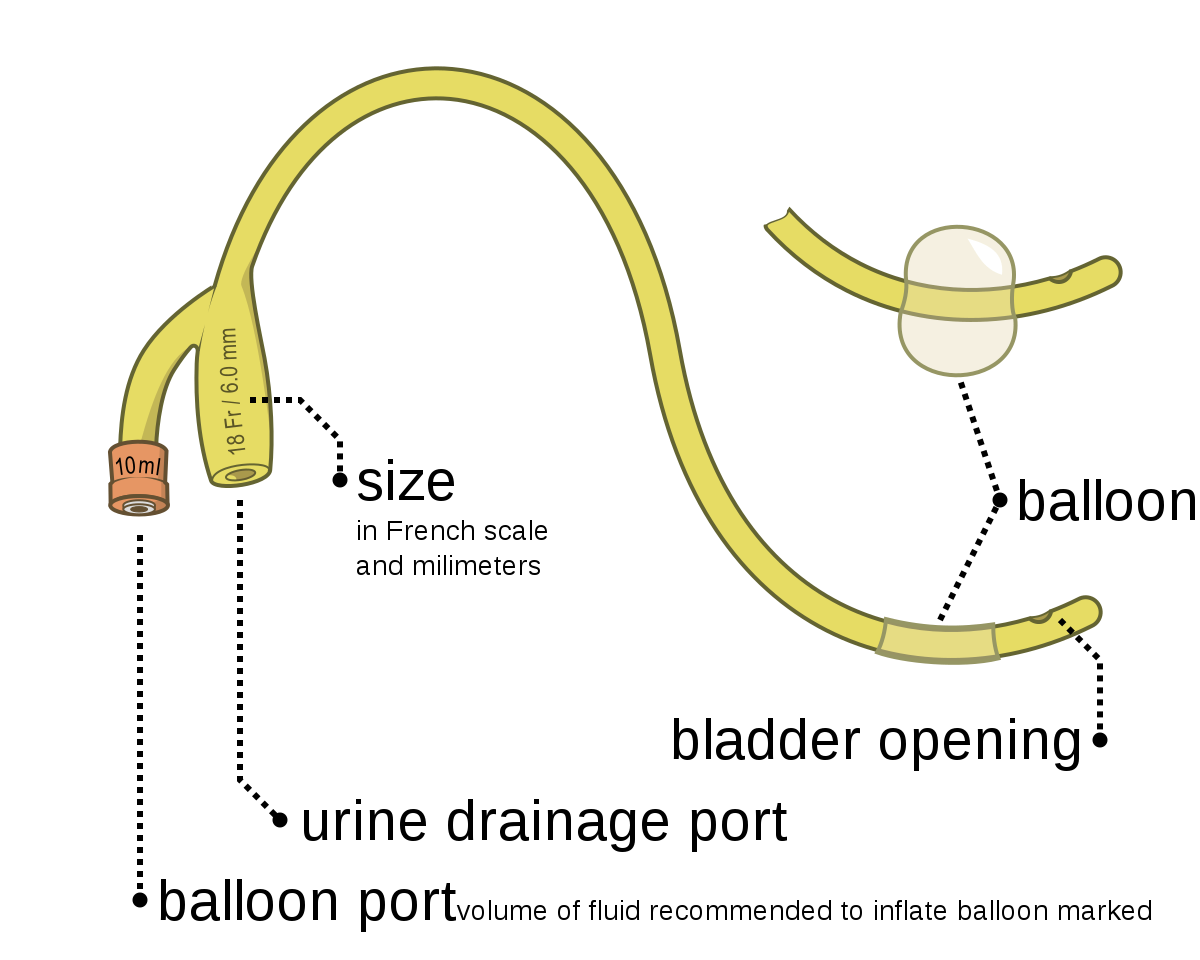 Source: zh.wikipedia.org
Source: zh.wikipedia.org
Place the drape under where the tube meets the bag. This may be fixed by flushing the catheter with saline solution, helping to move the particles that are clogging the tube. Open a sterile syringe package and draw 30 ml of normal saline into it. Place the drape under where the tube meets the bag. If you are unable to aspirate or irrigate the catheter, call the doctor.
 Source:
Source:
Urinary catheter/bladder irrigation requires a prescriber’s order. This may be fixed by flushing the catheter with saline solution, helping to move the particles that are clogging the tube. Periodic catheter irrigation is a common but … Irrigate through the catheter every four hours during the day using normal saline (do not use tap water). Put a clean towel under the catheter where it connects to the drainage tube.
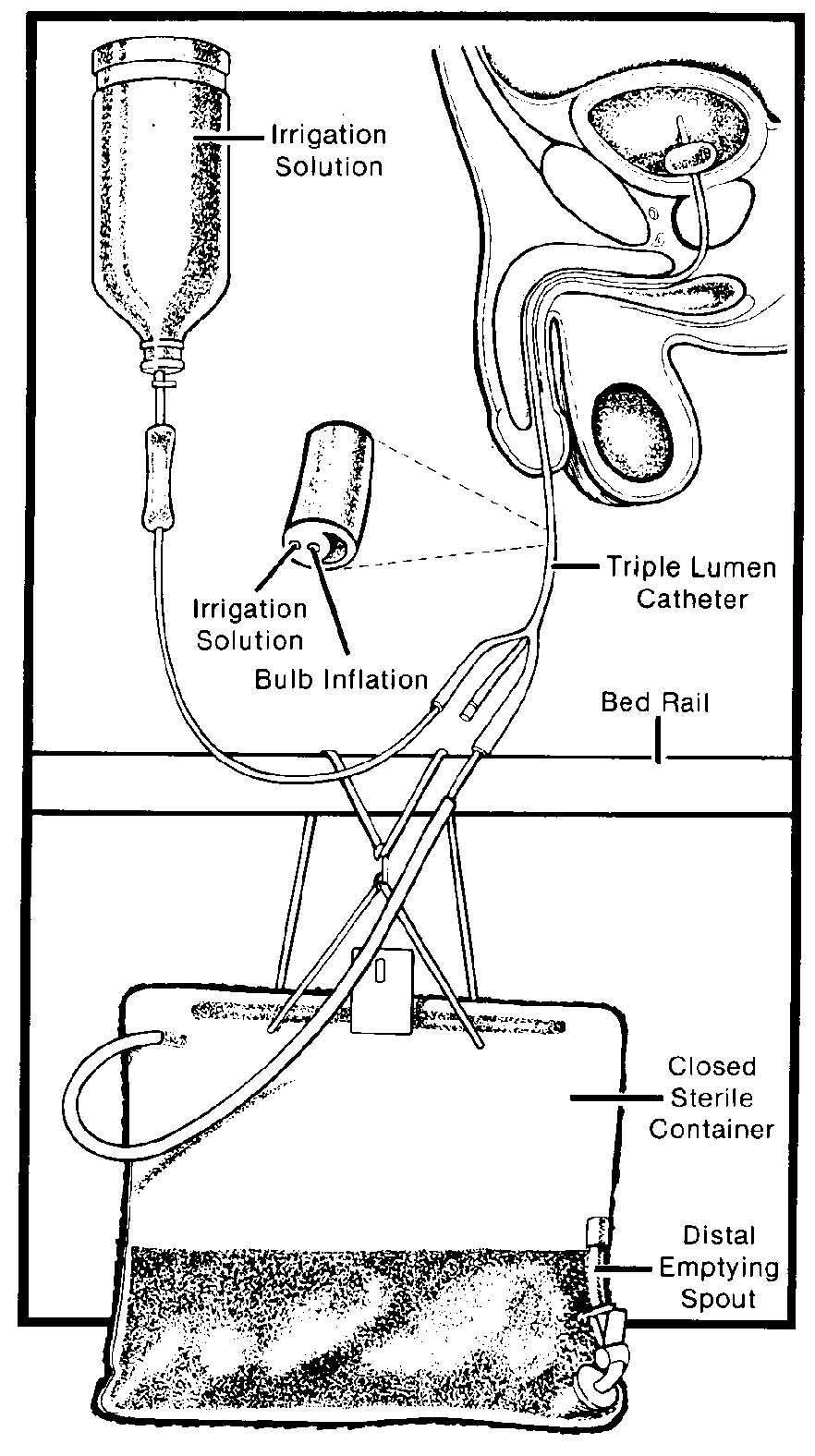 Source: brooksidepress.org
Source: brooksidepress.org
• each catheter irrigation kit, includes: Take the 60ml syringe to draw fluid from the container. Which action would the nurse take to manage continuous urinary catheter irrigation for a patient whose urine is bright red and contains clots? Irrigate through the catheter every four hours during the day using normal saline (do not use tap water). This may be fixed by flushing the catheter with saline solution, helping to move the particles that are clogging the tube.
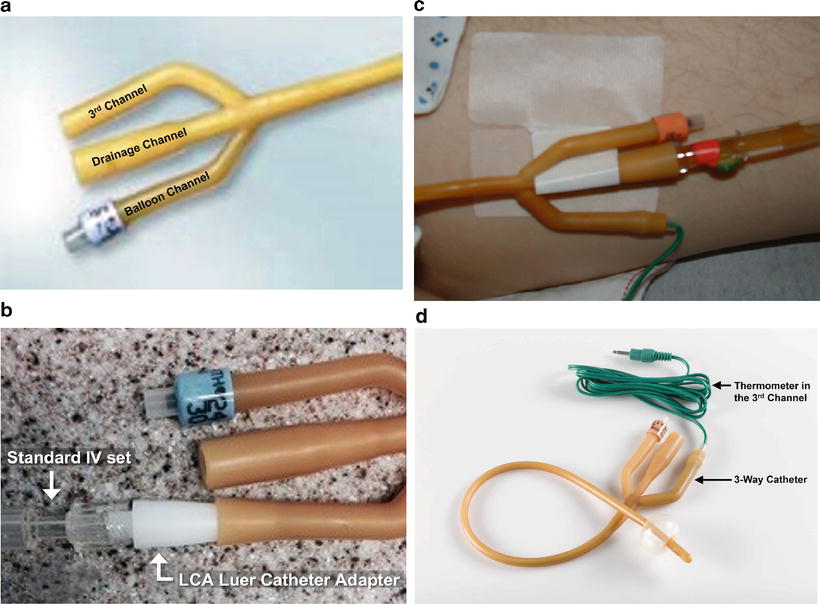 Source: link.springer.com
Source: link.springer.com
Irrigation is a procedure to open a plugged urinary catheter. Irrigate through the catheter every four hours during the day using normal saline (do not use tap water). In common usage, inserting a catheter usually refers to the common practice of inserting a urinary catheter into the bladder via a patient�s urethra for the purpose of draining urine. A 22f triple lumen is the standard size for bladder irrigation and ‘washout’. If you feel as though you need to irrigate/aspirate more frequently, please call the office, so we can update your chart.
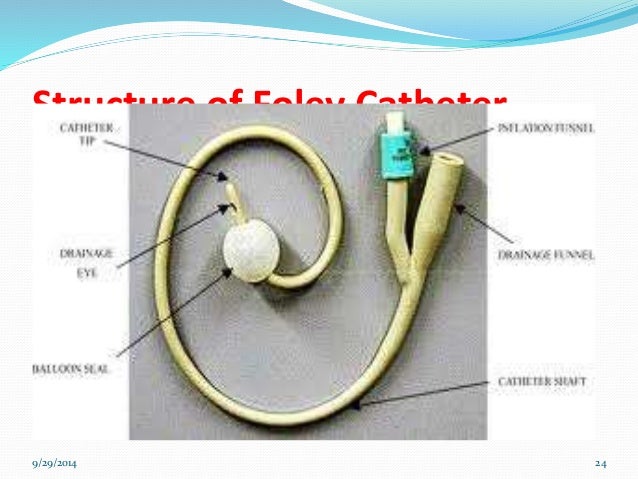 Source: slideshare.net
Source: slideshare.net
The bladder will be irrigated (flushed) with saline (salt water) to keep the urine draining freely through the catheter and to keep the catheter from getting plugged, damage to the spinal cord or nerves by the end of the spinal canal. Open a sterile syringe package and draw 30 ml of normal saline into it. Take the 60ml syringe to draw fluid from the container. Ensures procedure is being applied correctly, to reduce unnecessary opening of the system and reduce risk of infection. The bladder will be irrigated (flushed) with saline (salt water) to keep the urine draining freely through the catheter and to keep the catheter from getting plugged, damage to the spinal cord or nerves by the end of the spinal canal.
This site is an open community for users to do sharing their favorite wallpapers on the internet, all images or pictures in this website are for personal wallpaper use only, it is stricly prohibited to use this wallpaper for commercial purposes, if you are the author and find this image is shared without your permission, please kindly raise a DMCA report to Us.
If you find this site good, please support us by sharing this posts to your preference social media accounts like Facebook, Instagram and so on or you can also save this blog page with the title how to irrigate a urinary catheter by using Ctrl + D for devices a laptop with a Windows operating system or Command + D for laptops with an Apple operating system. If you use a smartphone, you can also use the drawer menu of the browser you are using. Whether it’s a Windows, Mac, iOS or Android operating system, you will still be able to bookmark this website.
